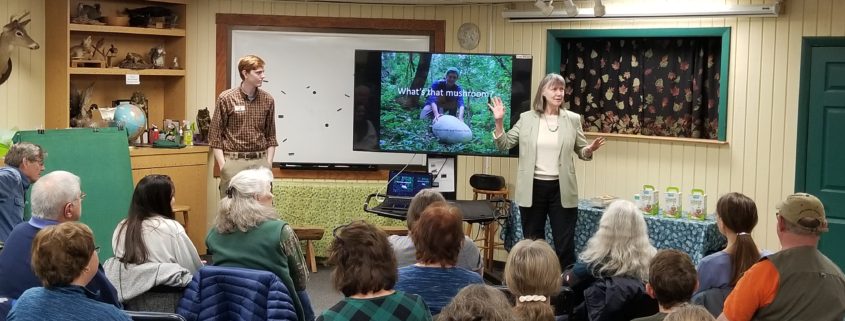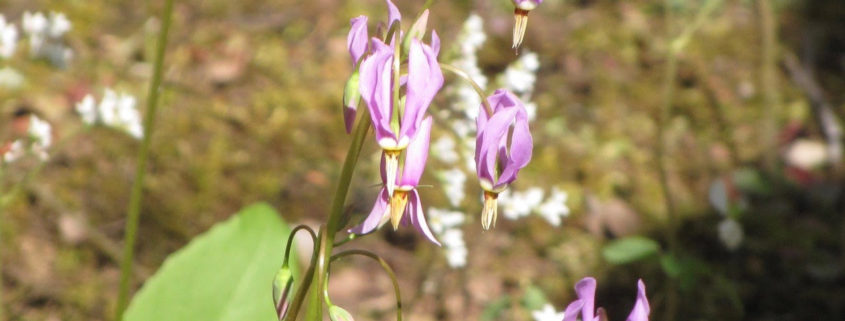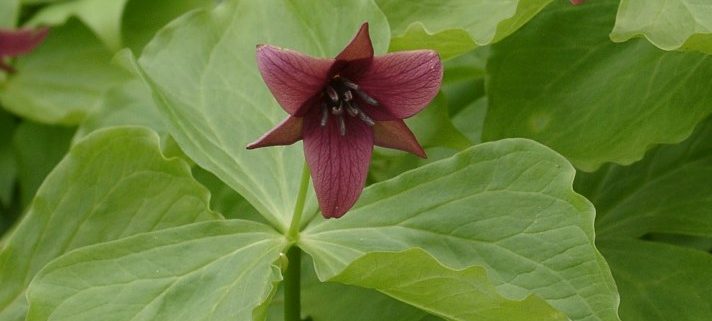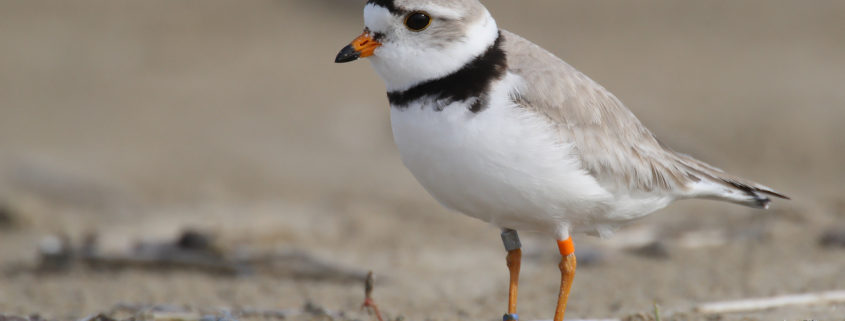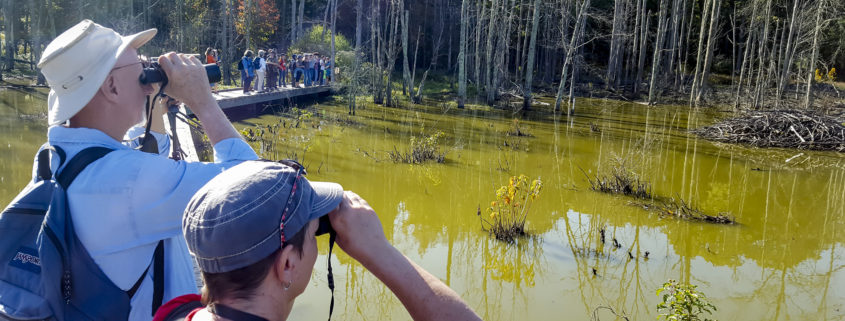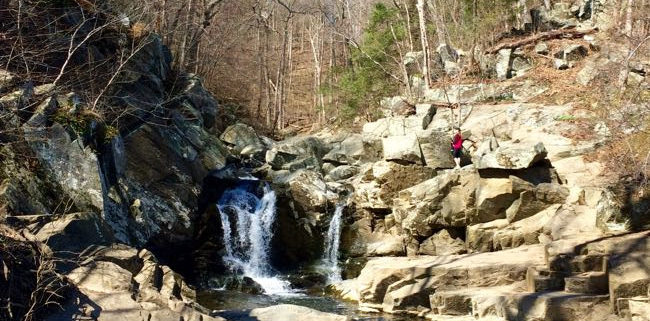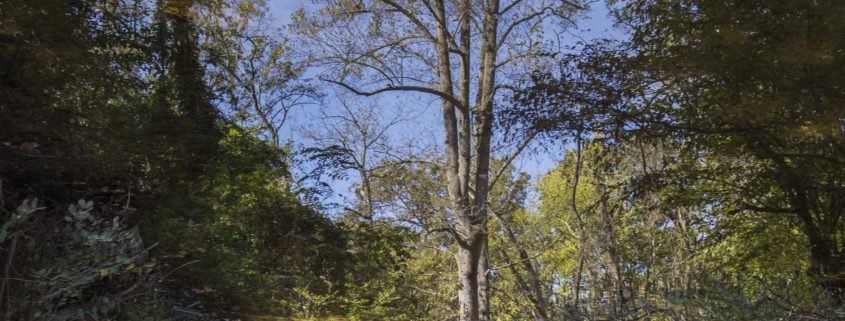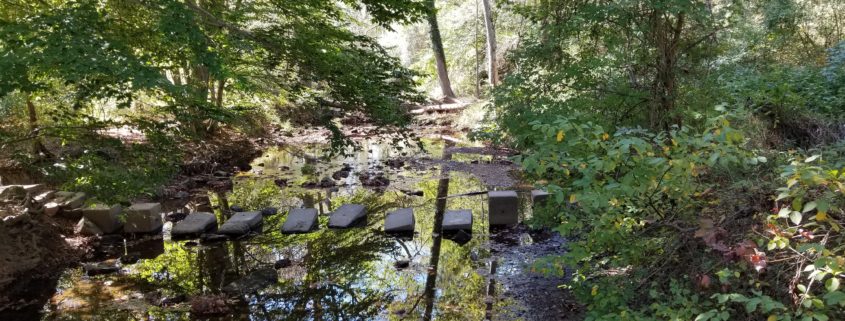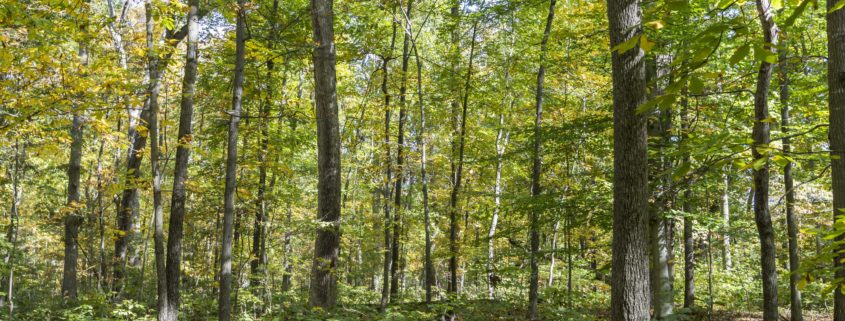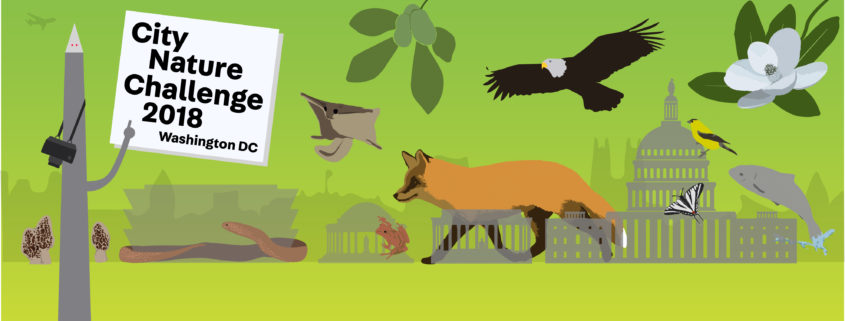With biologist Marion Lobstein
Saturday, April 7
11.00 am to 1.00 pm
This event has LIMITED SPACE, and you must register to attend.
Please click here to REGISTER.
To CANCEL your registration or ask a QUESTION, please email [email protected]
Balls Bluff, like much of piedmont Northern Virginia, is underlain by limestone deposits and topped by Ball’s Bluff siltstone deposits that date back 308 to 345 million years. The brick-red siltstone bluffs are more than 100 feet high in places and parallel the floodplain on the banks of the Potomac. The basic to neutral pH of the soils from the siltstone parent rock provide a rich habitat for less common to rarer species of native plants such as twinleaf (Jeffersonia diphylla), blue cohosh (Caulophyllum thalictroides), green violet (Hybanthus concolor), white trout lily (Erythronium albidum), Eastern shooting star (Primula meadia, formerly Dodecatheon meadia), and walking fern (Asplenium rhizophyllum). Masses of Virginia bluebells (Mertensia virginica) carpet the floodplain along with spicebush (Lindera benzoin) and pawpaw (Asimina triloba).
Marion Blois Lobstein is Professor Emeritus of NVCC, where she taught botany, general biology, microbiology, and other courses over her thirty-seven-year teaching career. She also taught Field Botany for thirteen summers at UVA’s Blandy Experimental Farm. For twenty-six years she conducted tours and taught classes for the Smithsonian Resident Associates Program. Her academic degrees include a BSEd (Biology) from W. Carolina Univ., MAT from UNC-Chapel Hill, and MS in Biology from George Mason Univ. She is co-author of Finding Wildflowers in the Washington-Baltimore Area. Marion serves on the Board of Directors of the Foundation of the Flora of Virginia Project and is a former Board Member of the Foundation of the State Arboretum at Blandy Experimental Farm. Marion is a founding and active member of the Virginia Native Plant Society. She currently lives in Warrenton, VA.
Other: Dogs are not permitted on Virginia Native Plant Society field trips.
What to wear: Dress for the weather and wear sturdy shoes.
Bring binoculars and hand lens if desired.


